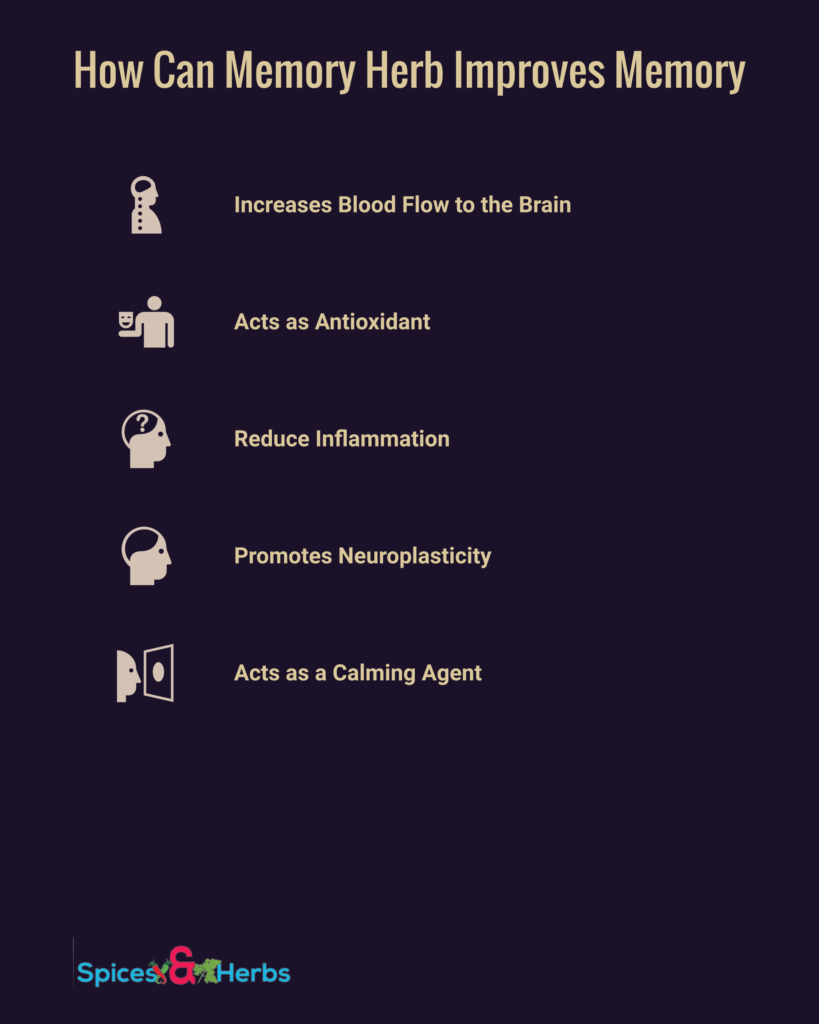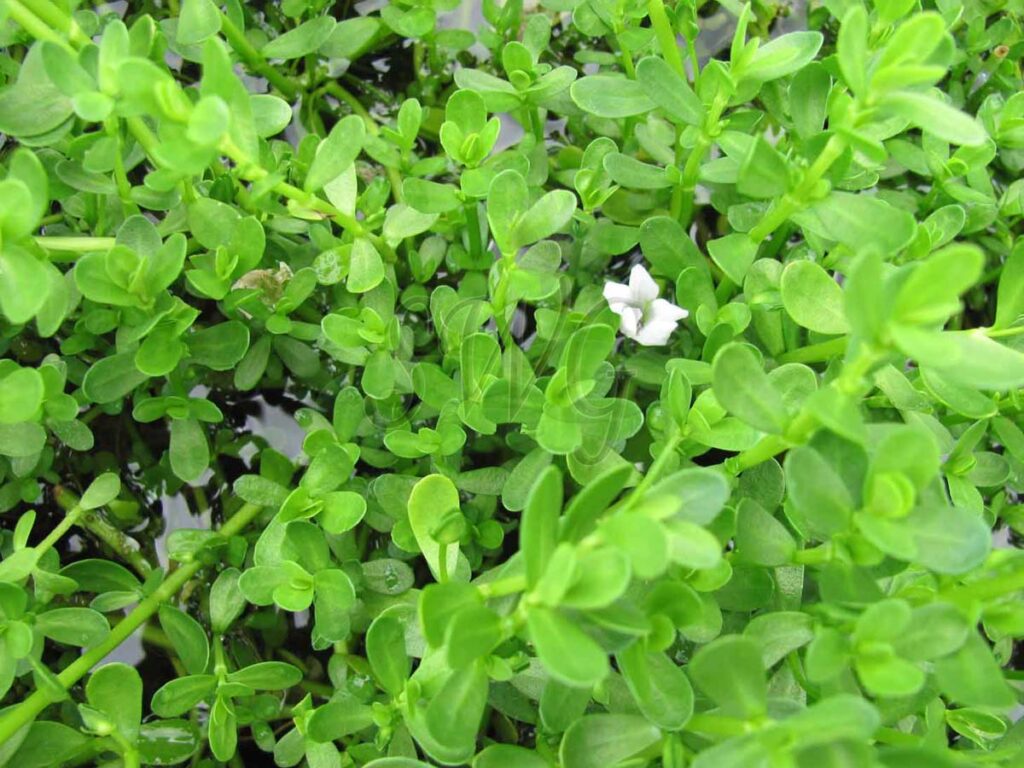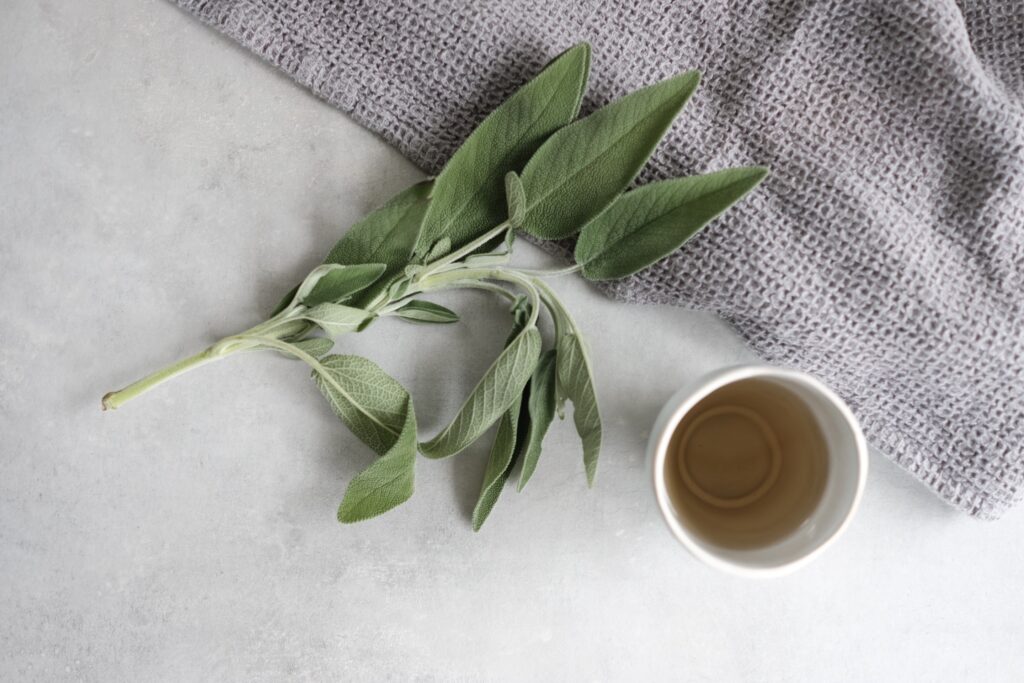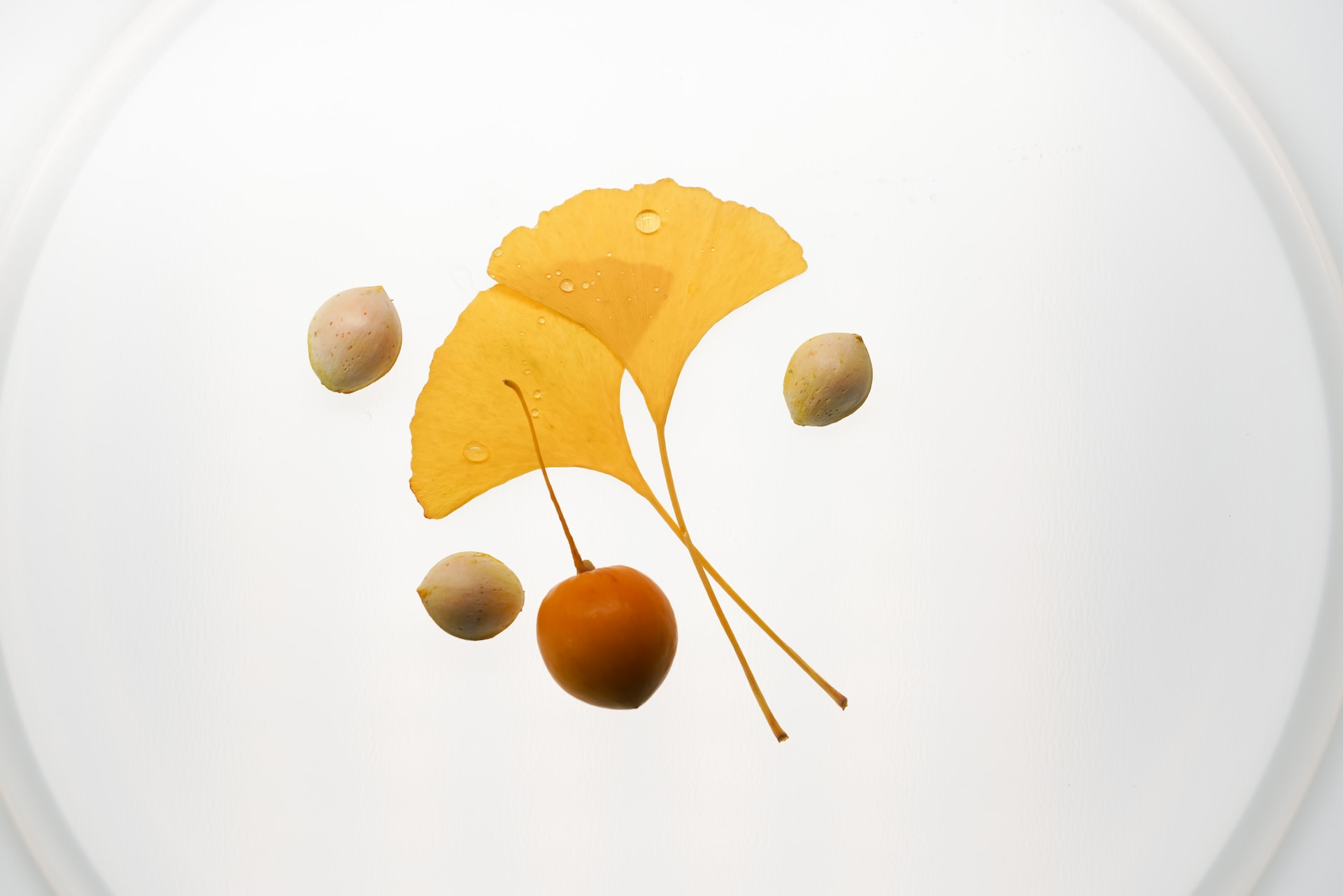Do you want to know what is memory herb? As we age, our memory tends to decline. Many people are looking for ways to improve their recall ability, and one option that has recently gained popularity is Memory Herb. But what exactly is Memory Herb? Well, it is a plant-based supplement believed to enhance brain function and memory. This herb has been used for centuries in traditional medicine, and many people swear by its effectiveness. But how does it work? Is it safe for everyone to use?
In this article, we will uncover all there is to know about memory herbs, the best herbs for brain health, and help you decide if it’s right.
What Is Memory Herb?

Memory herb is a term used to describe certain plants with natural compounds that can enhance memory and cognitive function. Bacopa monnieri, or Brahmi, is one of the most popular herbs. This herb is native to wetlands across Southeast Asia and has been used for centuries in Ayurvedic medicine for various health benefits. One of the most notable benefits is its ability to enhance memory and cognitive function.
How Does it Work?
The active compounds in Bacopa Monnieri work by stimulating the release of acetylcholine in the brain. Acetylcholine is a key neurotransmitter for cognitive function, including memory formation and recall. Studies have shown that Bacopa Monnieri can also boost blood flow to the brain, promoting the delivery of oxygen and nutrients to brain cells. The result is improved brain function and enhanced memory.
The Benefits of Memory Herb

Memory loss can be frustrating and can even impact our daily lives. Whether forgetting essential details or struggling to remember faces, memory loss can cause significant distress. Luckily, nature has provided us with a solution to this problem: memory herbs. So I will discuss some of the key benefits of memory herbs and how they can help you improve your memory.
✤Increases Blood Flow to the Brain
One of the key benefits of memory herbs is that they help increase blood flow to the brain. This is important because blood carries oxygen and nutrients to the brain. With increased blood flow, the brain gets more of what it needs to function properly. Herbs such as Ginkgo Biloba and Rosemary increase blood flow to the brain, improving memory recall and cognitive function.
✤Acts as an Antioxidant
Memory herbs also act as antioxidants. It means they protect our brain cells from damage caused by free radicals. These free radicals can cause oxidative stress, leading to brain cell damage and memory loss. You can keep your brain healthy and prevent memory loss by consuming herbs such as Turmeric and Sage.
✤Reduce Inflammation
Memory herbs also have anti-inflammatory properties. Inflammation can cause damage to brain cells and is associated with several cognitive disorders. Herbs such as Ashwagandha and Bacopa have been shown to reduce inflammation and help improve memory function.
✤Promotes Neuroplasticity
Neuroplasticity refers to the brain’s ability to adapt and change in response to new experiences and learning. Memory herbs such as Gotu Kola and Lions Mane have been shown to promote neuroplasticity, therefore helping to boost memory recall and cognitive function.
✤Acts as a Calming Agent
Another benefit of memory herbs is that they act as calming agents. Stress and anxiety can have a negative impact on memory recall and can even lead to memory loss. Herbs such as Chamomile and Lavender are known for their calming properties and can help reduce stress and anxiety, thereby improving memory function.
Whether you’re looking to boost your memory or prevent memory loss, adding memory herbs to your diet may be worth considering.
Identifying Memory Herbs – Different Types and Their Uses

While various herbal supplements can help improve your cognitive function, some have been scientifically proven more effective than others.Some herbs have already been mentioned above. Here, we will take a deeper look at each memory herb.
✔️Ginkgo Biloba
Ginkgo biloba is one of the most well-known herbs for memory enhancement. It’s been used for centuries in traditional Chinese medicine to enhance memory and treat cognitive impairment. Ginkgo biloba has been shown to improve blood flow to the brain, enhancing memory and cognitive function. It’s also an antioxidant that can help protect the brain from oxidative damage, which can accelerate cognitive decline.
✔️Rosemary
Rosemary is a popular culinary herb that’s also been used traditionally for its cognitive benefits. Rosemary contains compounds that can improve concentration and memory and may even help to prevent age-related cognitive decline. One study found that the scent of rosemary essential oil can improve memory and cognitive performance.
✔️Bacopa
Bacopa monnieri is an herb that’s been used in Ayurvedic medicine for centuries to enhance memory and cognitive function. Bacopa contains compounds that can improve blood flow to the brain and protect brain cells from damage. It’s been shown to improve cognitive function in brain healthy adults and those with cognitive decline.
✔️Sage
Sage is another culinary herb traditionally used for its cognitive benefits. Sage contains compounds that can improve memory and cognitive function. It may also have antioxidant properties that can protect the brain from damage. One study found that sage essential oil can improve cognitive performance in healthy adults.
✔️Ashwagandha
Ashwagandha is an adaptogenic herb that’s been used in Ayurvedic medicine for centuries to help the body cope with stress. It may also have cognitive benefits. Ashwagandha has been shown to improve memory and cognitive function in healthy adults and those with cognitive decline. It may also have antioxidant properties that can protect the brain from damage.
✔️Ginseng
Ginseng is a popular herb in traditional Chinese medicine and has been used for centuries to improve cognitive function. Research shows ginseng can improve memory, reaction time, and mental clarity. It’s also known for reducing stress and anxiety, which can harm cognitive function. You can take Ginseng in the form of green tea, supplements, or capsules.
✔️Gotu Kola
This medicinal plant has been used in traditional Chinese medicine and Ayurvedic medicine for centuries to enhance cognitive function. Gotu Kola contains compounds promoting neuroplasticity, improving memory recall and cognitive performance. It may also have antioxidant properties that can protect the brain from damage. Gotu Kola can be taken as a tea, supplement, or capsule.
Adding memory herbs to your diet can improve your cognitive function and help prevent age-related cognitive decline.
✔️Turmeric
Turmeric is also gaining popularity for its memory-enhancing properties. Research has shown that this traditional Indian spice can improve memory recall and cognitive performance. Turmeric contains compounds called curcuminoids with antioxidant, anti-inflammatory, and neuroprotective effects. This herb can be taken as a supplement, added to food or drinks, or consumed as turmeric tea.
Disclaimer: Remember to consult with your healthcare professional before taking any supplements or herbal remedies to ensure their safety and effectiveness.
Preparing Memory Herbs for Consumption – Tips & Tricks
Whether you’re a beginner or an experienced herbalist, these tips will help you get the most out of memory herbs and maintain optimal cognitive function.
☑Choosing the Right Herbs
The first step in preparing memory herbs for consumption is choosing the right herbs. Some of the most popular memory herbs include ginkgo biloba, bacopa monnieri, gotu kola, and rosemary. Each herb has unique properties that affect cognitive function differently. For example, ginkgo biloba increases blood flow to the brain, while bacopa monnieri helps reduce stress and anxiety.
When selecting herbs, it’s important to consider their quality. Choose organic, sustainable herbs free from pesticides, herbicides, and heavy metals. You can also consider growing your herbs in a small garden to ensure their quality.
☑Drying and Storing Herbs
Once you’ve selected the right herbs, the next step is to dry and store them properly. Drying the herbs is essential to prevent them from rotting or developing mold. You can dry the herbs by hanging them upside down in a cool, dark, and well-ventilated space for several days.
Once the herbs are dry, store them in airtight containers away from heat, light, and moisture. This will help preserve their potency and freshness. You can also label the containers with the herb’s name and the date you stored them to keep track of their shelf life.
☑Preparing Tea Infusions
Infusing herbs in water is one of the most popular ways to prepare memory herbs for consumption. Start by boiling water and pouring it over the herbs in a teapot or cup. Steep the herbs for 5-10 minutes, strain the tea and enjoy. You can also add honey, lemon, or other natural sweeteners to improve the taste.
When preparing tea infusions, using the right amount of herbs is important. The general rule of thumb is to use one teaspoon of dried herbs per cup of water. However, you can adjust this ratio based on your personal preference and the potency of the herbs.
☑Making Tinctures
Tinctures are another popular way to consume memory herbs. They’re made by soaking herbs in alcohol or vinegar to extract their medicinal properties. The resulting liquid is then strained and stored in dark glass bottles. You can add Tinctures to water or take directly under the tongue for quick absorption.
When making tinctures, it’s essential to use high-quality alcohol or vinegar that’s at least 80 proof. The ratio of herbs to alcohol/vinegar will depend on the herbs’ potency and the tincture’s desired strength. A 1:5 ratio of herbs to alcohol/vinegar is recommended for best results.
☑Using Essential Oils
Essential oils are highly concentrated extracts of memory herbs used for aromatherapy or topical application. You can diffuse it in a room, add it to a carrier oil, or use it in a massage. Essential oils are potent and should be used with caution, following the instructions on the label. When purchasing essential oils, choose high-quality, organic oils from reputable sources.
Preparing memory herbs for consumption requires careful consideration of the herbs’ properties and quality. You can maximize their therapeutic benefits and maintain optimal cognitive function by choosing the right herbs, drying and storing them properly, and using the right preparation method.
Risks Associated with Consuming Memory Herb – Potential Side Effects

While consuming this herb may seem like a natural and effective way to improve memory, it is essential to acknowledge its potential risks and side effects.
❗Digestive Issues:
Digestive problems are the most common side effects of consuming memory herbs such as turmeric and ginseng. These herbs can cause gastrointestinal problems such as nausea, diarrhea, and vomiting. Consuming them in high doses or prolonged periods can also cause gastrointestinal bleeding, constipation, and loss of appetite. For people with sensitive stomachs and underlying digestive issues, memory herbs can worsen their symptoms. It’s essential to consult a licensed healthcare practitioner if you experience persistent digestive issues after consuming memory herbs.
❗Allergic Reactions:
Some memory herbs can cause allergic reactions in susceptible individuals. Common allergic reactions include skin rashes, itching, and hives. In rare cases, people may experience anaphylactic shock, a life-threatening allergic reaction characterized by difficulty breathing, swelling, and low blood pressure. People allergic to pollen are also prone to the adverse effects of memory herbs such as echinacea and ginkgo biloba, which contain high pollen levels. If you experience allergic reactions after consuming memory herbs, discontinue use immediately and seek medical attention.
❗Blood Pressure Fluctuations:
Memory herbs such as ginseng, ginger, and ginkgo biloba can affect blood pressure. These herbs contain substances that can lower or raise blood pressure. Ginseng, for example, can raise blood pressure and cause palpitations and headaches. Ginkgo biloba, on the other hand, can lower blood pressure, increasing the risk of fainting and dizziness. If you have high or low blood pressure, it’s essential to consult a healthcare provider before consuming memory herbs.
❗Drug Interactions:
Memory herbs interact with several medications, especially blood thinners, antidepressants, and antipsychotics. These herbs can either enhance or reduce the efficacy of these medications, leading to adverse health effects. For instance, ginkgo biloba can interfere with blood-thinning medications such as warfarin, increasing the risk of bleeding. If you are on any medication, it’s crucial to consult your healthcare provider before consuming memory herbs.
❗Thyroid issues:
Memory herbs such as seaweed and kelp contain high amounts of iodine, which can worsen thyroid conditions such as hyperthyroidism and hypothyroidism. Consuming these herbs in high amounts can cause inflammation and swelling of the thyroid gland, leading to thyroid disorders. People with thyroid conditions should be cautious when consuming memory herbs and consult their healthcare provider for advice.
❗Liver Toxicity:
Memory herbs such as comfrey and kava are known to cause liver toxicity. These herbs contain high levels of pyrrolizidine alkaloids, which can damage liver cells and cause liver failure. Liver toxicity symptoms include yellowing skin and eyes, nausea, dark urine, and abdominal pain. If you experience these symptoms after consuming memory herbs, discontinue use immediately, and seek medical attention.
Remember, natural is not always safe, and it’s essential to approach memory herbs cautiously to avoid adverse health effects.
Frequently Asked Questions
Are memory herbs suitable for people of all ages?
Memory herbs like ginkgo biloba, Bacopa monnieri, and ashwagandha are generally safe for people of all ages. However, it’s important to note that some herbs have not been tested on children, pregnant women, or people with pre-existing medical conditions. Therefore, if you fall under these categories, consult your healthcare provider before taking any memory herbs.
Can memory herbs help with age-related memory decline?
Yes, various studies have shown that taking certain memory herbs can effectively improve cognitive function and reduce age-related memory decline. Ginkgo biloba, for instance, has been the subject of numerous studies that have documented its positive effects on short-term memory, focus, and overall cognitive performance. Bacopa monnieri, on the other hand, has been shown to enhance memory recall, learning ability, and mental processing speed.
How long does it take to experience noticeable effects from memory herbs?
The time frame for experiencing noticeable effects from taking memory herbs can vary depending on the individual, the herb, and the dosage. Studies have shown that some herbs like Bacopa monnieri and ashwagandha can take up to 12 weeks to experience noticeable benefits. In contrast, ginkgo biloba may take only a few weeks to affect cognitive function positively. It’s also important to note that taking the recommended dosage consistently is crucial to observe improvements over time.
Final Words
In conclusion, I have learned that the world of herbal medicine is vast and fascinating, and one particular herb I find intriguing is memory herb. As someone who occasionally struggles with remembering details and retaining important information, I am excited to explore the potential benefits of this herb. Its ability to improve memory, focus, and mental clarity is remarkable. While scientific research on the effectiveness of memory herb is ongoing, anecdotal evidence suggests that it has been used for centuries as a natural remedy to enhance cognitive function.
As I continue discovering the power of natural remedies, I am excited to incorporate memory herbs into my daily routine and see how they can benefit my mental capabilities. I hope that this article has given you insight into the potential benefits and risks of memory herbs, so you can make an informed decision about whether to include them in your daily health routine.

